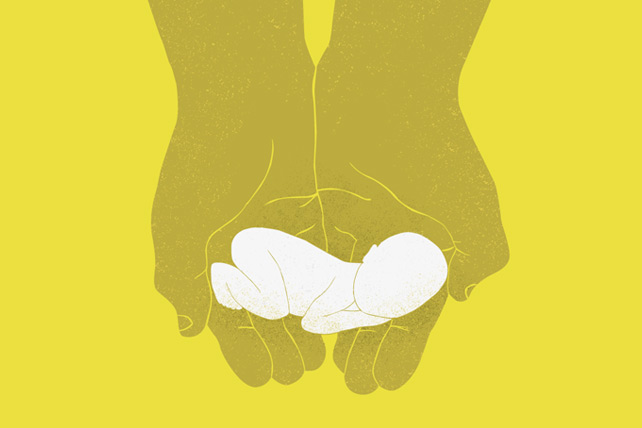In a landmark decision, the state of New York has passed the Reproductive Health Act (RHA). The law allows medical practitioners to perform abortions up to the day of the birth, provided “there is an absence of fetal viability, or the abortion is necessary to protect the patient’s life or health.” According to the new law,
Every individual who becomes pregnant has the fundamental right to choose to carry the pregnancy to term, to give birth to a child, or to have an abortion.
What Is Different?
According to the Times Union, under New York’s previous, 49-year-old law, illegal abortions that took place within the third trimester of pregnancy were categorized as felonies. Those who committed one could receive up to seven years in prison. The Buffalo News reports that, under the old law, late-term abortions were only permitted if they were necessary to save the life of the mother. The new law, however, allows abortions after 24 weeks if they are deemed necessary, not merely to save the mother’s life but also to protect her health.
The RHA gets rid of any definition of abortion as a criminal act, categorizing it instead within public health law. The bill also removes some limits on who can perform an abortion. In addition to licensed physicians, now other medical professionals, such as nurse practitioners, physician assistants and certified nurse midwives, can perform one.
According to the new law, these professionals will rely on their “reasonable and good faith professional judgment based on the facts of the patient’s case” in order to decide whether to perform an abortion.
Another notable aspect of the new bill is that in its explanation of homicide, a “person” is defined as “a human being who has been born and is alive.”
This is not the first time New York has attempted to pass the Reproductive Health Act. The bill has failed in the past because it always died in the Republican-controlled Senate. But, says the Times Union, after last year’s midterm elections, Democrats gained a majority, giving them the votes needed to pass the RHA. Driving this newest attempt to pass the bill was fear that Roe v. Wade would be overturned because of President Trump’s recent pro-life appointees to the Supreme Court.
Said Governor Andrew Cuomo, “With the signing of this bill, we are sending a clear message that whatever happens in Washington, women in New York will always have the fundamental right to control their own body.”
The Law’s Impact
Opponents of the bill have a number grave concerns about it, says the Buffalo News. The primary one is that people will broadly interpret the term “health” to include mental and emotional health, significantly increasing the number of late-term abortions in New York.
Another concern is that the new law lessens the consequences for perpetrators of domestic violence who cause pregnant women to lose their babies. State Senator Catharine Young calls the new law’s language “an assault on a woman’s fundamental right to pregnancy.”
A crucial argument for justifying the RHA is that late-term abortions can be necessary in order to protect the life or health of a mother. While this might be true at times, obstetrician and gynecologist Dr. Anthony Levatino says that in nine years of helping women with high-risk, late-term pregnancies, he has saved hundreds of lives, not by performing abortions, but by delivering babies.
While working at Albany Medical Center in Albany, New York, Dr. Levatino saw pregnant women who had conditions such as cancer, heart disease, intractable diabetes and toxemia. It is, he says, much more efficient and effective to attempt to deliver a baby via C-section rather than to perform a late-term abortion, which requires dilating the cervix. That process can take hours or even days, prolonging the danger the mother is in. Says Dr. Levatino, “In all of those years, the number of babies…that I was obligated to deliberately kill in the process was zero, none.”
It remains to be seen how people will interpret and apply the new law. While advocates think it long overdue, State Senator Chris Jacobs sees it as fear-driven and extreme. According to The Buffalo News, he said, “I believe even pro-choice people, if they knew what was in this bill, would not be supportive of it.”

